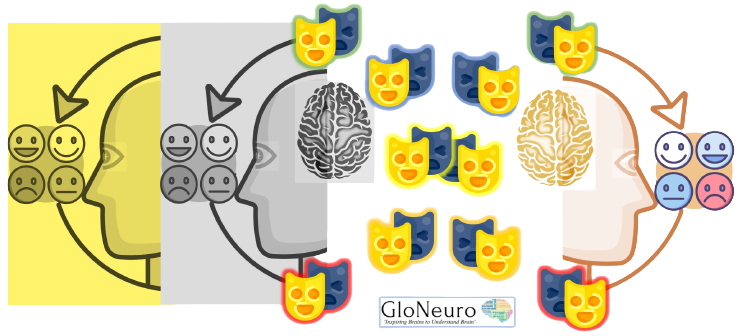In a fast-paced and demanding world, taking care of our mental health is more important than ever. Mental health affects every aspect of our lives, from our relationships and productivity to our overall well-being. Yet, it remains a topic often shrouded in stigma and misconception. In this GloNeuro series on mental health, we will delve into the significance of mental health, raise awareness about its importance, and explore ways to prioritize and nurture our own mental well-being. Join us on this multimedia based interesting GloNeuro journey as we unravel the layers of mental health and discover the path to a happier and healthier mind.
Mental health is a vital aspect of overall well-being that affects every aspect of our lives. It encompasses our emotional, psychological, and social well-being, influencing how we think, feel, and act. In recent years, the significance of mental health has gained widespread recognition as societies worldwide strive to address the challenges and promote awareness surrounding mental well-being.
Understanding the importance of mental health is paramount, as it plays a pivotal role in our overall well-being and is crucial for numerous reasons. First and foremost, mental health is essential for individual happiness and life satisfaction. When our mental well-being is intact, we experience a sense of balance, resilience, and emotional stability. It enables us to cope with the stresses of daily life, maintain healthy relationships, and make meaningful contributions to society. Furthermore, mental health is closely linked to physical health. Research has consistently shown that individuals with good mental health are more likely to lead healthier lifestyles, exhibit lower rates of chronic diseases, and have improved overall physical well-being. Conversely, untreated mental health conditions can exacerbate physical health issues, leading to a vicious cycle of declining well-being.
Raising awareness about mental health is crucial to combat the stigma and discrimination that often surround mental health conditions. Education and open conversations help dispel misconceptions, encourage empathy, and promote acceptance. By fostering a supportive environment, individuals are more likely to seek help, access appropriate resources, and engage in self-care practices. Governments, organizations, and communities have a pivotal role in promoting mental health awareness through initiatives such as public campaigns, educational programs, and accessible mental health services.

Career Options:
The growing recognition of mental health’s significance has led to an increased demand for professionals in the field. There are numerous career options available for individuals interested in promoting mental well-being and supporting those with mental health conditions. Some prominent career paths include:
- Clinical Psychologist: Clinical psychologists assess, diagnose, and treat mental health disorders using various therapeutic approaches.
- Psychiatrist: Psychiatrists are medical doctors specializing in mental health, prescribing medications and providing comprehensive psychiatric care.
- Counseling Psychologist: Counseling psychologists offer therapy and support individuals dealing with emotional and psychological challenges.
- Social Worker: Social workers provide assistance, advocacy, and resources to individuals and families facing mental health issues.
- Psychiatric Nurse: Psychiatric nurses work in collaboration with psychiatrists, providing holistic care for patients with mental health disorders.
- Mental Health Counselor: Mental health counselors offer guidance, counseling, and support to individuals and groups experiencing mental health concerns.
- Art Therapist: Art therapists utilize art-based interventions to promote self-expression and emotional healing in individuals with mental health issues.
- Researcher: Researchers in the field of mental health contribute to the advancement of knowledge and evidence-based practices.
Prioritizing mental health is crucial for overall well-being and leads to a healthier, happier society. By raising awareness, reducing stigma, and providing support, we can foster an environment where individuals feel empowered to seek help and access the resources they need. Moreover, the field of mental health offers a range of rewarding career options for those passionate about making a positive impact on individuals’ lives. Together, let us continue to prioritize mental health and work towards building a world where mental well-being is universally valued and supported.
Related Articles







